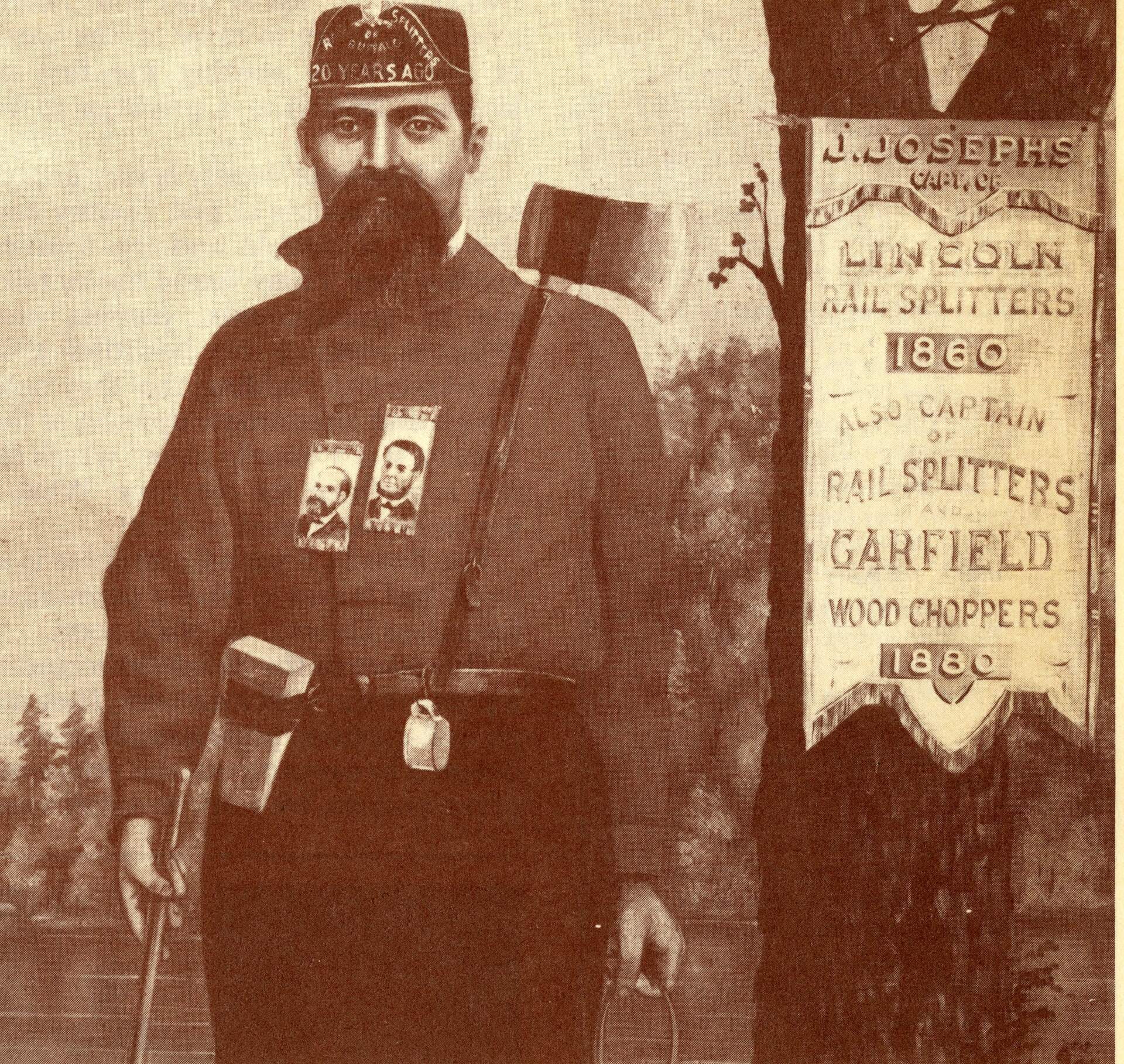Joseph Josephs
1826-1893
Born: New York, NY
Joseph Josephs was a commercial and sign painter, folk artist and political figure in Buffalo. He was well known and influential throughout the city, and his work ultimately preserved many components of Buffalo’s social history. Known as “Elephant Joe”, Josephs ran his own sign shop and maintained a very prosperous and popular business.
Josephs was born on Broadway in New York City in 1826. He worked as an apprentice and journeyman commercial painter in New York, Baltimore and Philadelphia before settling in Buffalo in 1853.[1] Josephs was primarily self-taught, and developed a linear, two-dimensional style indicative of the folk art tradition. In 1855 he opened his own sign shop, using his style to provide new and innovative advertising for businesses amid an expanding economy, both before and after the Civil War.[2]
Although he specialized in sign advertisements, Josephs used his stylized designs to create business cards, banners, and assorted printed materials for a variety of businesses. He would also paint prominent genre paintings, which would depict different scenes and events taking place in every day Buffalo life.[3] Described as “a man of no small ego,”[4]Josephs’ genre paintings included self-portraits highlighting different phases of his life.
One such portrait, Captain J. Josephs, Rail Splitter, highlighted Josephs’ dedicated political involvement. Rail Splitter was an organized Republican campaign group, and Josephs was a well-known supporter and organizer for the Republican party following the Civil War.[5]
Ironically Josephs was known around town as Elephant Joe, as he would wear a gold elephant on his watch chain, carry around elephant symbols and souvenirs to hand out to friends, and incorporate them into his paintings.[6] Although his adaptation of the elephant as his personal trademark was not political in nature, whether his continuous promotion of elephants was for his own personal brand or solely for his appreciation of the animal is unclear.[7]
In 1869, Josephs’ shop relocated to 46 Exchange St. At the shop’s dedication, Josephs unveiled one of his most renowned folk paintings, a massive genre painting of his storefront. The piece illustrates a regular day in front of the shop; Josephs includes patrons on the front stairs, signs representative of the one’s he created for customers, prominent political figures and other minute components of Buffalo’s social scene.[8] J. Josephs’ Sign Shop not only exemplified Josephs’ day to day life and the way he saw the world around him, but also his skill and use of detail to touch on a multitude of themes, including civic pride, humor and patriotism.[9]
In 1883, Josephs’ shop was torn down to make room for an expanding printing company. Josephs was grief stricken by the closure but knew the impact his shop had on Buffalo would live long past the physical space. In an effort to conserve that impact, Josephs preserved the signs, as well his storefront painting so that its legacy would continue to live on. Shortly before the closing, Josephs expressed this sentiment to a newspaper interviewer:
“‘The building is about to go, but it will exist on canvas for many years to come. I have a painting of it as it appeared on the occasion of its dedication, and that is destined to become very valuable, not on account of its artistic worth, but as a souvenir of old Buffalo.’”[10]
Josephs died in Buffalo in 1893.
[1] Jean Reeves, “‘Elephant Joe,’ Folk Artist, Civic Booster”, Buffalo Evening News, September 14, 1974, Archived publication.
[2] Jean Reeves, “‘Elephant Joe,’ Folk Artist, Civic Booster”, Buffalo Evening News, September 14, 1974, Archived publication.
[3] Jean Reeves, “‘Elephant Joe,’ Folk Artist, Civic Booster”, Buffalo Evening News, September 14, 1974, Archived publication.
[4] Joyce Buchnowski, “Elephant Joe”, New York Folklore Society Journal Volume 17, No. 4, September 19, 1985, Archived publication.
[5] Joyce Buchnowski, “Elephant Joe”, New York Folklore Society Journal Volume 17, No. 4, September 19, 1985, Archived publication.
[6] Joyce Buchnowski, “Elephant Joe”, New York Folklore Society Journal Volume 17, No. 4, September 19, 1985, Archived publication.
[7] Joyce Buchnowski, “Elephant Joe”, New York Folklore Society Journal Volume 17, No. 4, September 19, 1985, Archived publication.
[8] Jean Reeves, “‘Elephant Joe,’ Folk Artist, Civic Booster”, Buffalo Evening News, September 14, 1974, Archived publication.
[9] Jean Reeves, “‘Elephant Joe,’ Folk Artist, Civic Booster”, Buffalo Evening News, September 14, 1974, Archived publication.
[10] Joyce Buchnowski, “Elephant Joe”, New York Folklore Society Journal Volume 17, No. 4, September 19, 1985, Archived publication.
